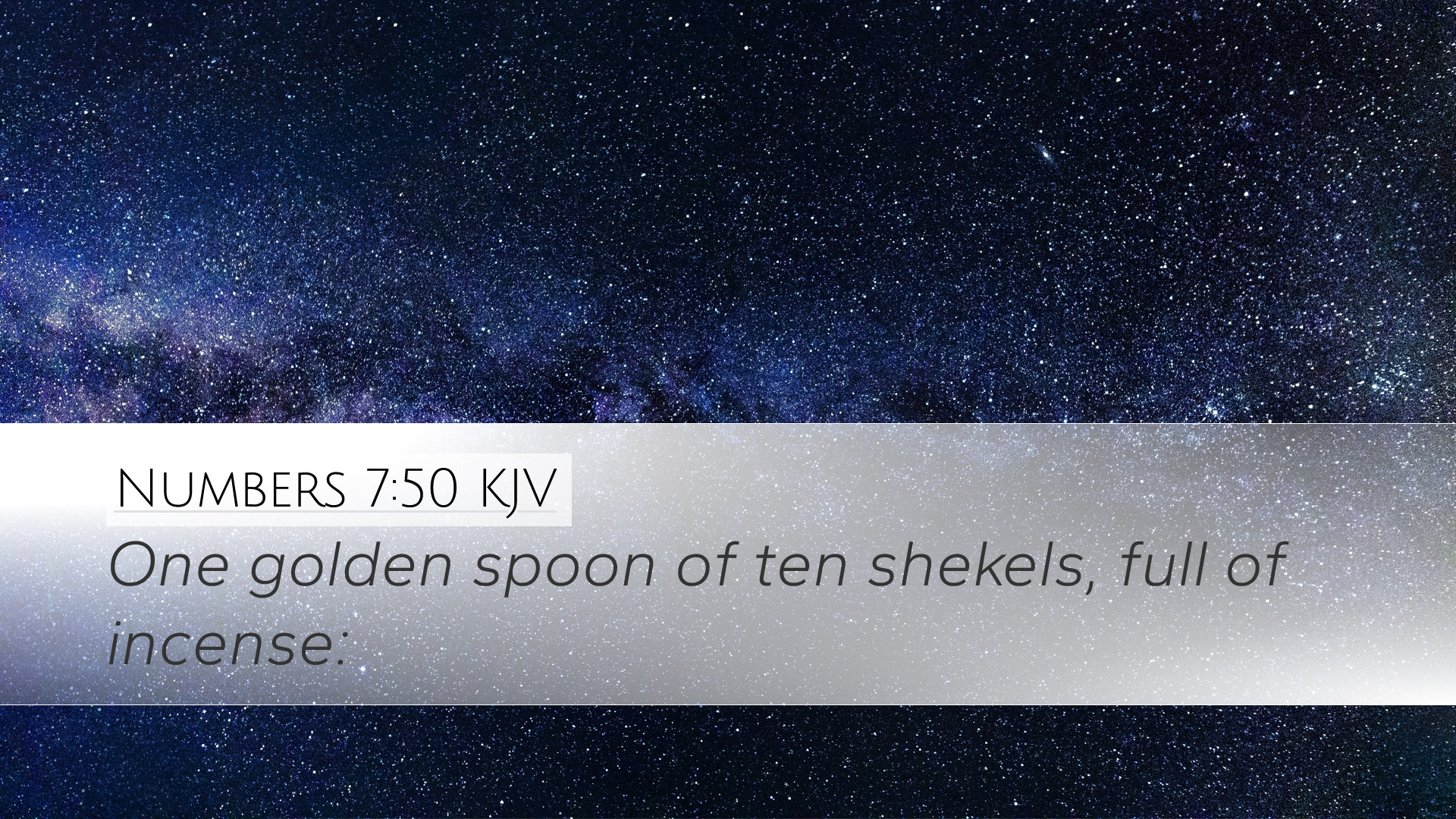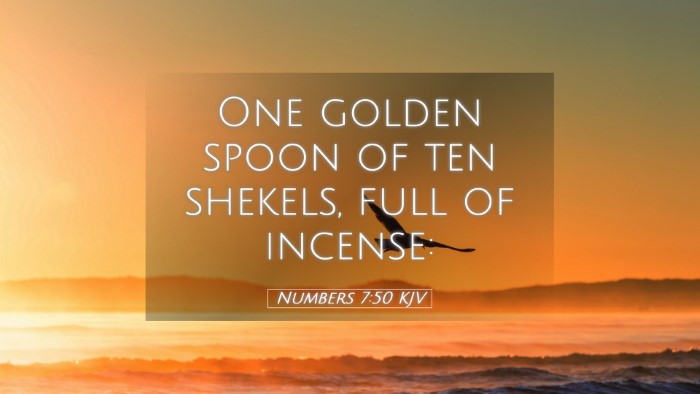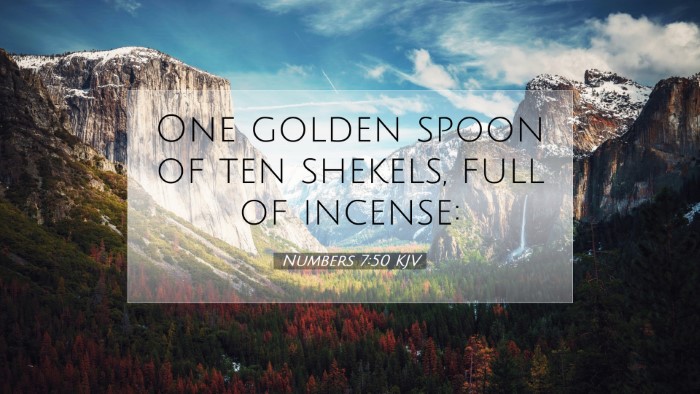Commentary on Numbers 7:50
Verse Context: Numbers 7:50 states, "One gold pan of ten shekels, full of incense." This verse pertains to the offerings presented by the leaders of the tribes of Israel during the dedication of the altar. It highlights the significance of the offerings and their value in worship.
Insights from Matthew Henry
Matthew Henry emphasizes the importance of the offerings made by the leaders of the tribes. He notes that the gold pan, weighing ten shekels and filled with incense, symbolizes the dedication and reverence towards God. The choice of incense, which is often associated with prayer, signifies that worship should be combined with sincere supplication and an offering of one's resources.
- Symbolism of Incense: Incense represents the prayers of the saints (Revelation 5:8), and its use in this context indicates that divine worship requires a fragrant offering alongside verbal prayers.
- Leadership and Responsibility: Leaders are depicted as those who are responsible for presenting offerings on behalf of their people, showcasing their role as mediators between God and the community.
Insights from Albert Barnes
Albert Barnes remarks on the collective nature of the offerings presented in Numbers 7. He highlights that each tribal leader brought offerings, which highlighted the unity and communal responsibility among the tribes. Barnes focuses on the ceremonial significance of the offerings and how they served as a means to seek God’s favor.
- Community Worship: The act of each leader presenting offerings signifies the community's collective dedication to God. It reminds pastors and church leaders of the importance of involving the whole congregation in worship.
- Value of the Offerings: The specific mention of the gold pan and the ten shekels serves to remind worshippers of the importance of giving their best to God, both in substance and intent.
Insights from Adam Clarke
Adam Clarke elaborates on the details and weights provided in the verse, considering them significant for understanding the magnitude of the offering. Clarke notes that each tribe contributed equitably, thus reflecting their dedication and the seriousness of their vow to serve God.
- Equality in Offering: Clarke stresses that the equal contribution symbolizes fairness and unity. This should challenge modern congregations to ensure that all participate in worship, irrespective of their socio-economic status.
- Inculcating a Culture of Generosity: The meticulous listing of the offerings invites reflection on how communities today must cultivate a spirit of generosity and commitment to God’s work through tangible acts of giving.
Theological Reflection
This verse, while specific to the Old Testament ceremonial practices, opens avenues for rich theological reflection relevant for the contemporary church. The essence of worship, involving the giving of material possessions alongside the offering of prayers, continues to be a foundation of Christian practice today.
- Worship as Multi-Dimensional: The act of giving should be viewed as an integral part of worship, not merely as a funded activity but as a reflection of one's heart and relationship with God.
- Understanding Our Offerings: Believers are challenged to consider what they bring to God. Are our offerings meaningful, identical in spirit to the offerings described in Numbers 7:50?
- Call for Holistic Worship: The idea that worship encompasses multiple aspects—prayer, sacrifice, and offerings—calls for an integrated approach to worship in modern settings.
Practical Application
For pastors, students, and scholars, Numbers 7:50 serves as a poignant reminder of the need for sincerity and significance in worship practices.
- Encouraging Leadership: Church leaders should model generosity and service, guiding their congregations to understand the importance of their contributions to God's work.
- Teach on Giving: Educational opportunities should be created to discuss the biblical principles of giving, using the concept of 'offering' found in this verse as a basis.
- Integrate Worship and Prayer: Establish worship services that weave together prayer and giving, ensuring that the act of giving is seen as an extension of worship and devotion to God.
Conclusion: Numbers 7:50 encapsulates profound truths about worship, community, and dedication to God. The insights drawn from the commentaries challenge contemporary believers to examine their practices and offerings, reaffirming the need for sincerity and commitment in worship.


